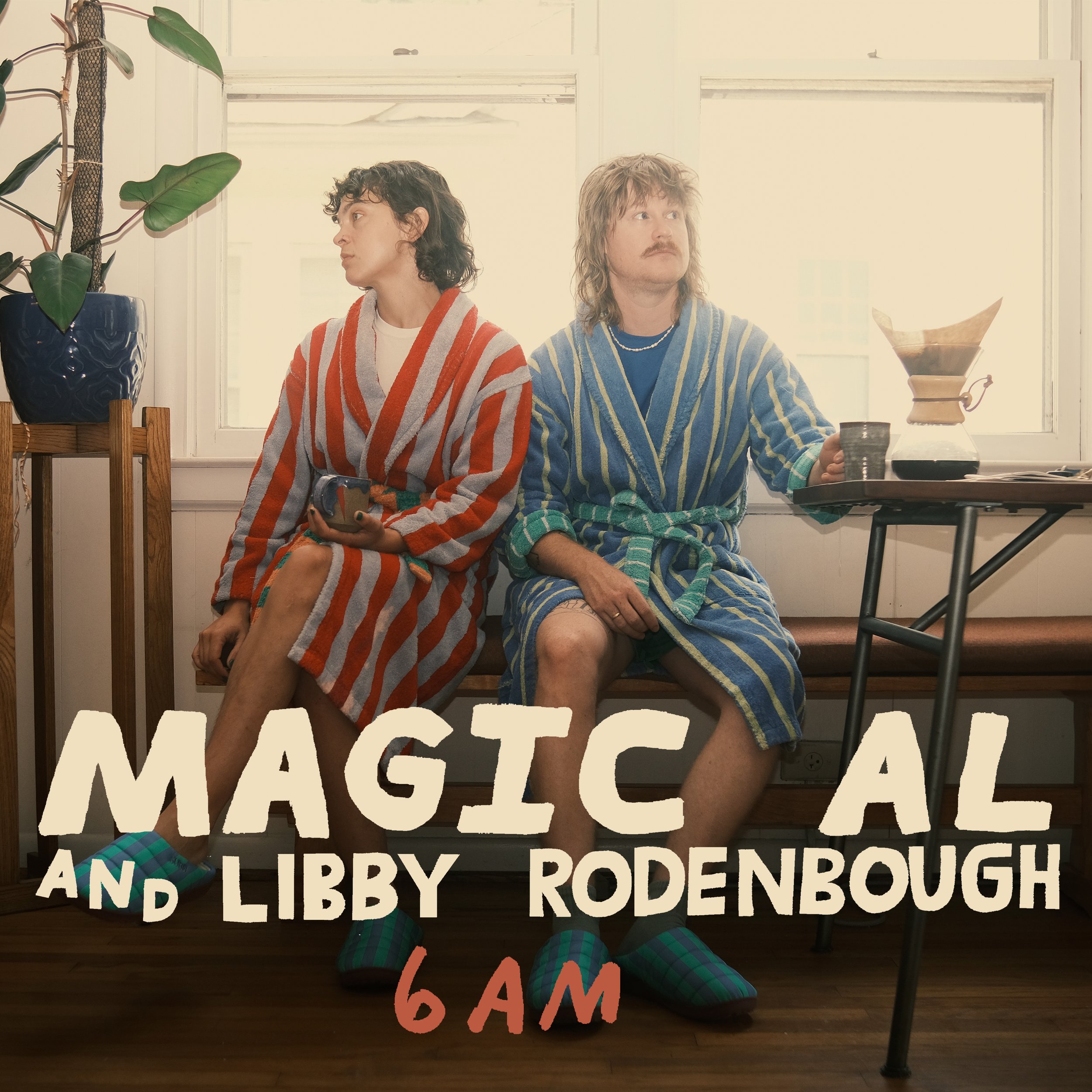Good Grief, out now!
Photo by Chris Frisina/ Tender Wizard
Magic Al
Alex Bingham, fully eight years old, was sitting in the backseat of his friend’s car on the way home from the neighborhood pool, sun just touching down on the horizon, when he first heard “Dancing Queen.” The ripeness of kid summer made everything sweeter and a little bit sad. He felt the tock of the drum machine in the pavement-stained rubber soles of his Keds. A bemused passenger, he rode the exuberance of the chorus vocal up to the climactic bittersweetness of its end–what accounts for that minor chord under ”you can dance, you can jive?” What does it even mean, “having the time of your life?”
Since those days of drippy popsicles and nascent hormones, Bingham has been chasing the mysterious technicolor universe of feeling that radiates from the heart of a dance song. He embarks on a glimmery new chapter of that mission with his debut record as Magic Al, Good Grief.
In the last ten years, Bingham has cemented himself as one of the most beloved sidepeople–primarily as a bass player–and producers in the world of folk and indie rock (especially emanating out of the Triangle of North Carolina). You might have seen him with Hiss Golden Messenger, Beth Orton, or Watchhouse, or heard his studio piloting of records by Lou Hazel and Libby Rodenbough.
In 2022, Bingham was blindsided by the deaths of his best friend, his aunt, and his college roommate within the span of a few months. As death has a habit of doing, these losses set his heart to questioning many things that had formerly felt concrete. He realized it had become harder to find the passion for music-making he’d once considered intrinsic. Searching for a new orientation, he turned to his eight year-old backseat wonderment and began the recording experiments that would become Good Grief.
Eventually the process waterfalled into co-creations with a number of Bingham’s deep roster of songwriter and vocalist pals, including Rosali, Joseph Terrell, Amelia Meath, and Molly Sarlé. These collaborative tracks join a handful of solo instrumentals to create a kind of producer’s mixtape. It’s an ode to endurance by way of joy-making; to dancing as a target and a cure.
Many of the tracks sprouted from the sense of a memory of his best friend, John, or his Aunt Angie which Bingham would then try to blow up to the scale of a song. He recalled John’s love of strumming along to CCR or Neil Young songs and found moments to lay breezy acoustic guitar over his stoner-ABBA beats. In this way the record-making served as a personal process of memorial, and beyond that a way to bring his living musical compatriots into a kind of togetherness with his lost loved ones. Throughout Good Grief, you can feel Bingham’s yearning to bridge the divides between dead and living, between profundity and lightness, between mourning and dancing.
Bio by Libby Rodenbough






